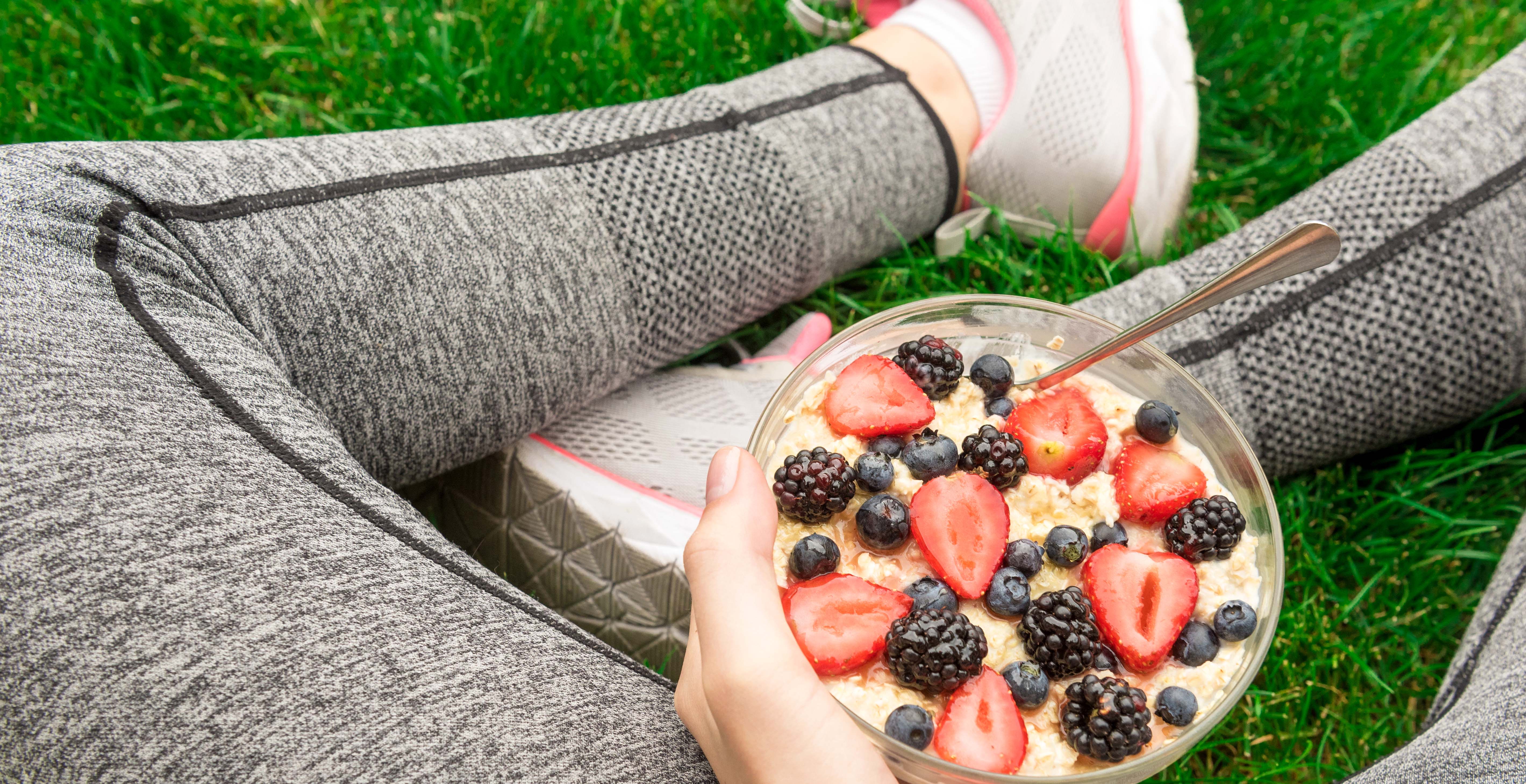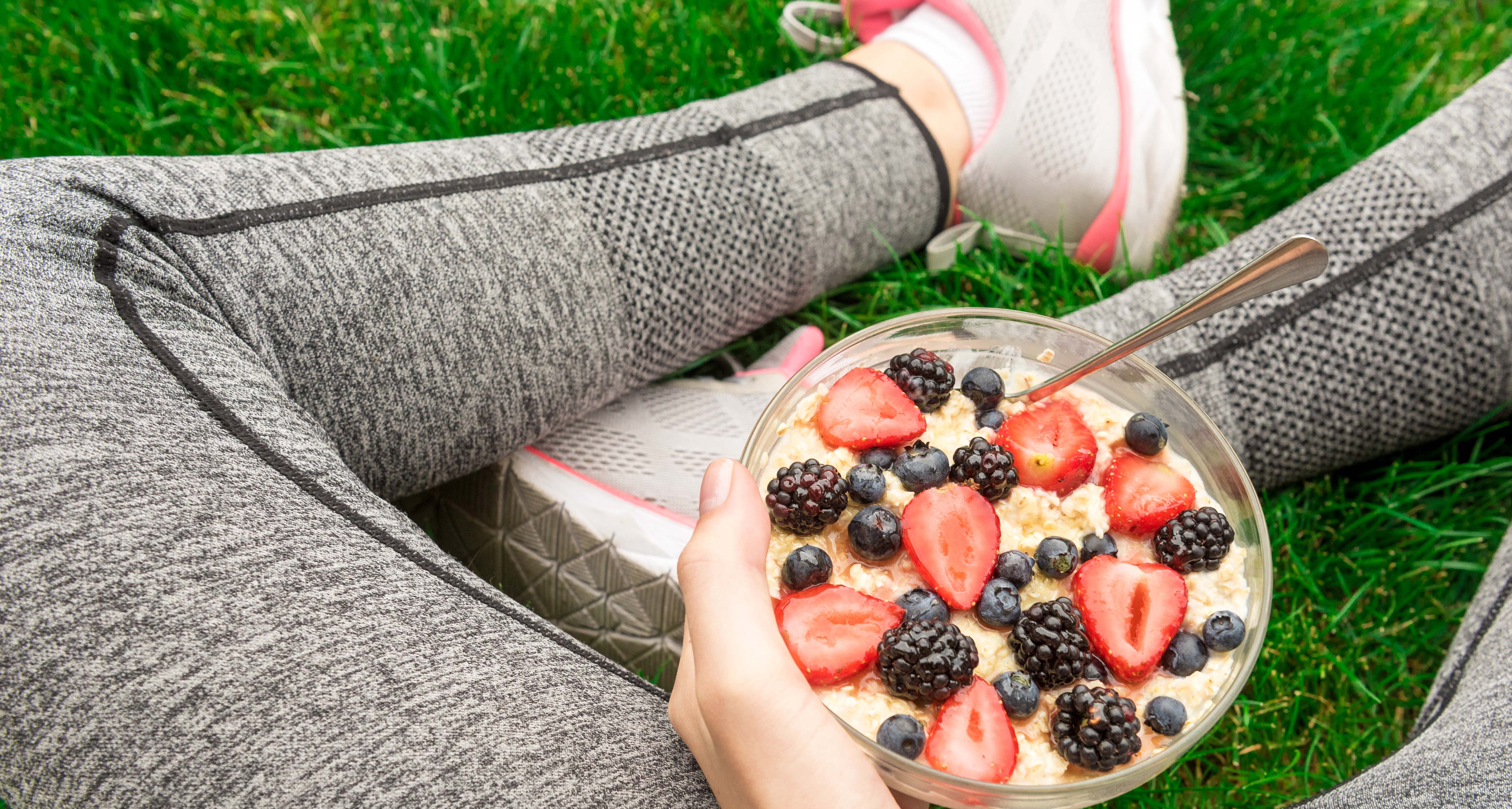Pre- and Post- Workout Noshing


Everybody has an opinion on this – should you eat before a workout or after or both, a big meal or a small snack, carbs or no carbs? We talked to some experts to see what they recommend.
Pre-Workout
“Whether your goal is simply to maintain your weight or gain muscle, planning out your meals before a workout can ensure that you successfully reach your fitness goals,” says Ashvini Mashru, a registered dietitian nutritionist and owner of Wellness Nutrition Concepts in Philadelphia.
To ward off hunger and have a better workout, Mashru recommends eating a little carb-protein combo snack before heading out to the gym or the hiking trails.
“If you’re dragging or distracted by hunger, it is unlikely you will be performing at your best,” she says.
San Francisco-based registered dietitian Julie Upton says, “If you are exercising first thing in the a.m. and start to feel light-headed and feel like you can't get a great workout in because you feel weak, then you need to eat something light before your workout.” In cases like this, Upton recommends a hardboiled egg with half a whole grain English muffin or one piece of fresh fruit.
“The best snacks are mostly – about 65 per cent – carbohydrates with some protein,” Mashru says. “For carbs, aim for one large banana or a half bagel. For protein, try a tablespoon of all-natural peanut butter or a small cup of yogourt.”
Explaining why the carb-protein combination is important, Mashru says, “The logic behind carbohydrate consumption to fuel exercise has less to do with energy density – both carbs and protein have four calories per gram; fat has nine calories per gram – and more to do with digestion. ‘Slow burning’ complex carbohydrates, such as fruits, vegetables, whole-grain bread, rice, pasta, and cereals, are a good choice because they are digested easily and without the glucose spikes of simple carbs.”
Stella Metsovas, author of Wild Mediterranean, offers the Mediterranean diet approach to eating for fitness.
The Mediterranean diet, which has been linked to lower risk of heart disease, typically consists of olive oil, lots of fruit and vegetables, fish, nuts, poultry, bread, potatoes, beans, and not much red meat.
“I would recommend lean proteins like chicken or fish two hours before a workout, combined with vegetables that are steamed or lightly sautéed, topped with extra virgin olive oil,” Metsovas says. “Adding some farro or rice is also a great addition if you plan on doing some cardiovascular exercise,” she notes.
Post-Workout
Upton says many women who struggle with their weight over-eat after exercising, so it’s important to understand the post-workout meal.
This all boils down to recovery nutrition, which Upton wrote about in this piece on her website.
“The rules of muscle recovery come down to three Rs: rehydrate, refuel, and rebuild. Drinking beverages helps to replace the fluids lost from sweat, refuelling begins with carbohydrates that are burned during exercise and amino acids from quality products help repair and rebuild muscle tissue,” she writes.
As a general rule, Upton recommends eating 15-25 grams of quality protein with 0.5-0.7 grams of carbohydrate per pound of body weight within the first 30 minutes to one hour after exercising. Some foods she recommends are:
- Cottage cheese with fruit
- Whole-wheat toast with fruit, nut butter and a glass of milk
- Greek yogourt parfait made with fresh or frozen berries and raw quick-cooking oats
“You burn a lot of calories post-workout, so it’s natural to experience an increase in appetite afterwards,” Mashru says. “Your body is prompting you to eat in order to rebuild its fuel stores, but if you’re not careful, you could end up eating more calories than you burned off during your workout, without actually nourishing yourself.”
Like Upton, Mashru’s recommendation for a post-workout meal is high-fibre carbohydrates and protein. Sounds a lot like the pre-workout meal, right? But there’s one key difference:
“Unlike your pre-workout meal, which should contain more carbohydrates than proteins, I recommend that post-workout, you aim for snacks offering more protein,” Mashru says. Why?
“Protein helps your body to recover from the strain of the workout.”
Mashru’s Carb Choices
- Beans
- Whole grains like oatmeal and brown rice
- Fruits and veg
Mashru’s Protein Picks
- Low-fat dairy
- Lean meat
Mashru also stresses the importance of staying hydrated.
“Whether you’re practising yoga, running or weight-lifting, it is important to remain hydrated to prevent fatigue and keep performance levels up. Drinking water replenishes fluids lost through sweating, and having enough water in your system is vital for proper body function.”
Click here for hydration guidelines from Dietitians of Canada, or learn more about hydration here.